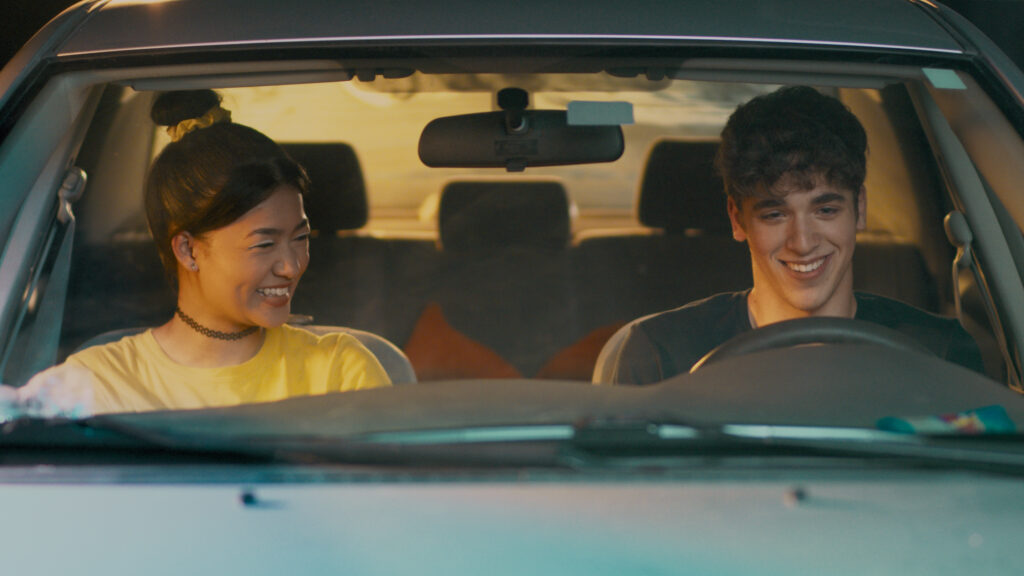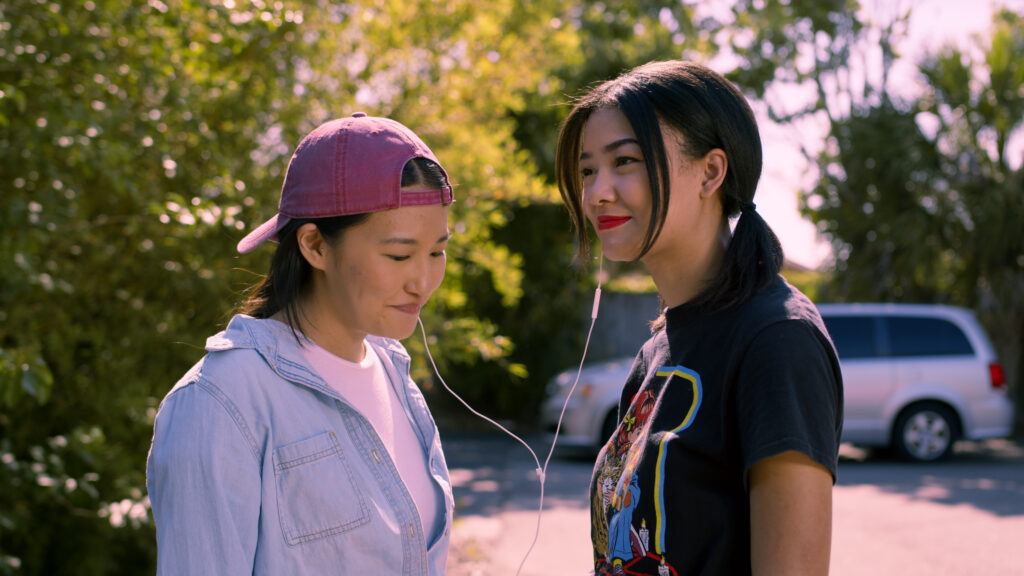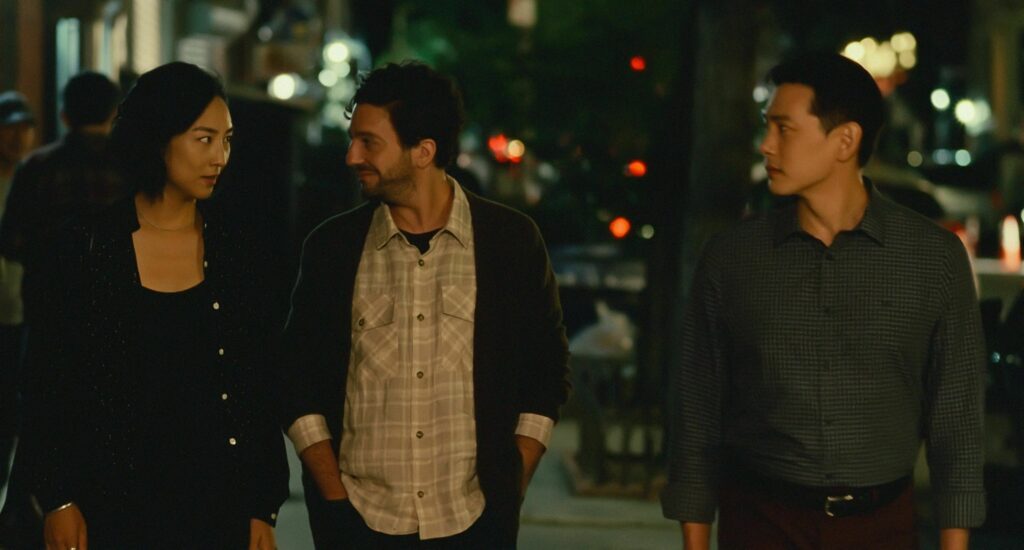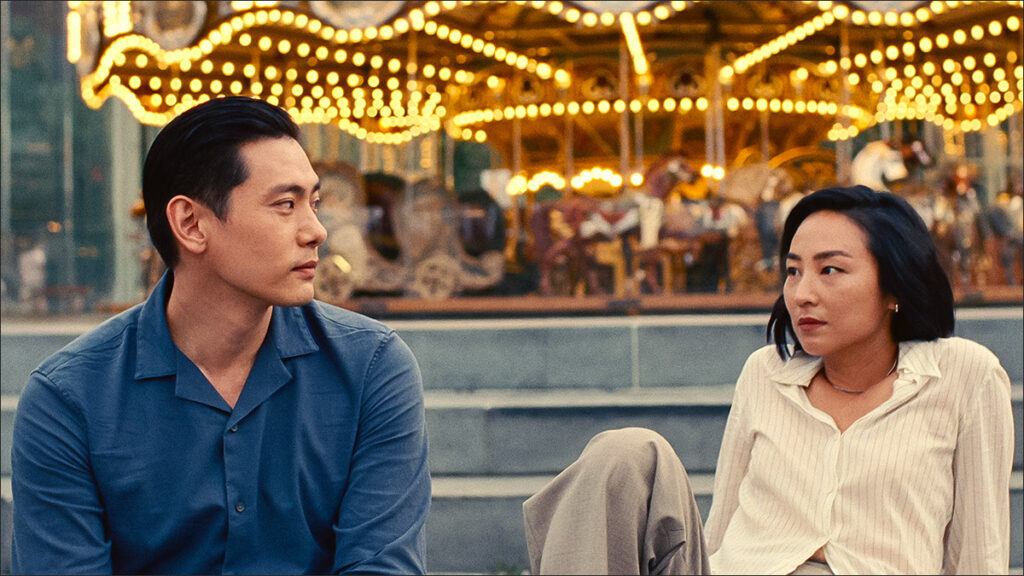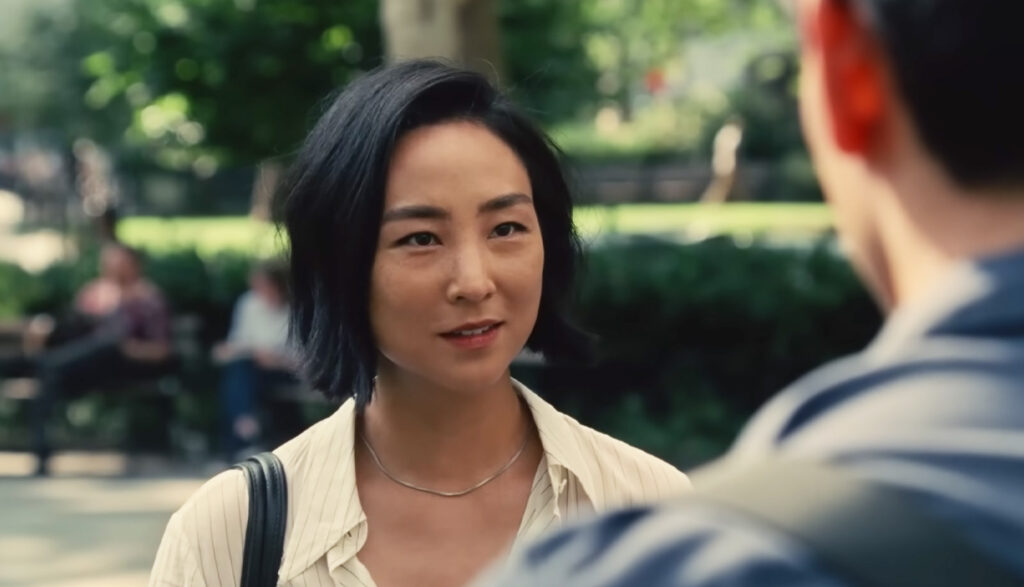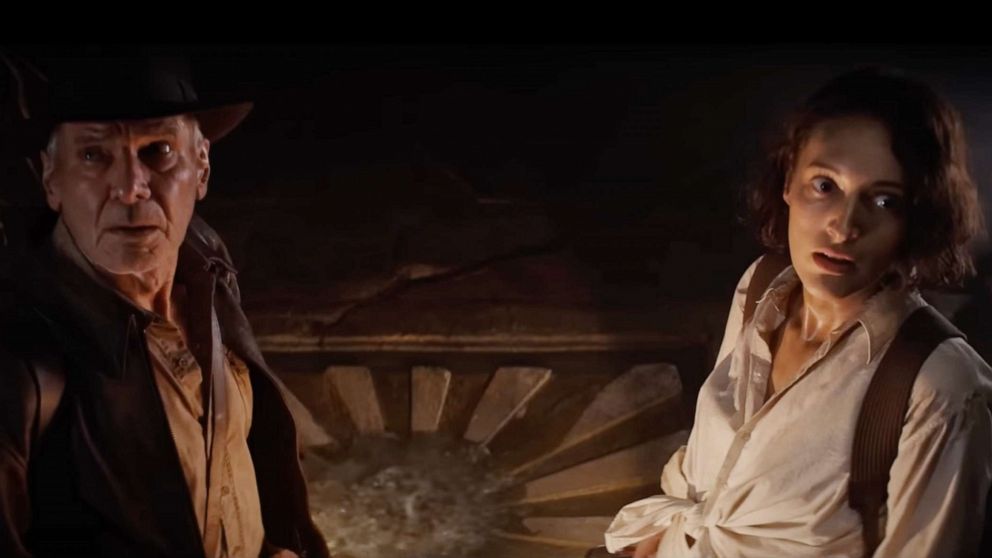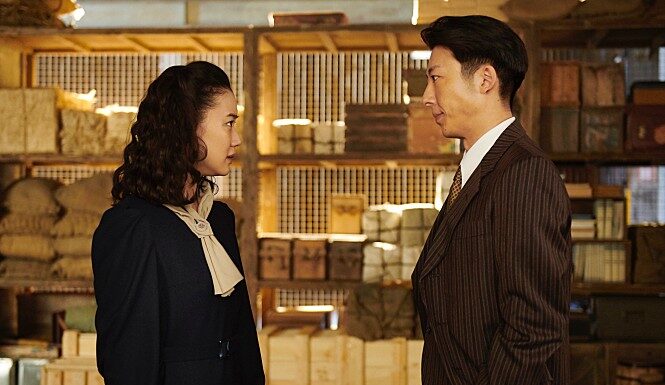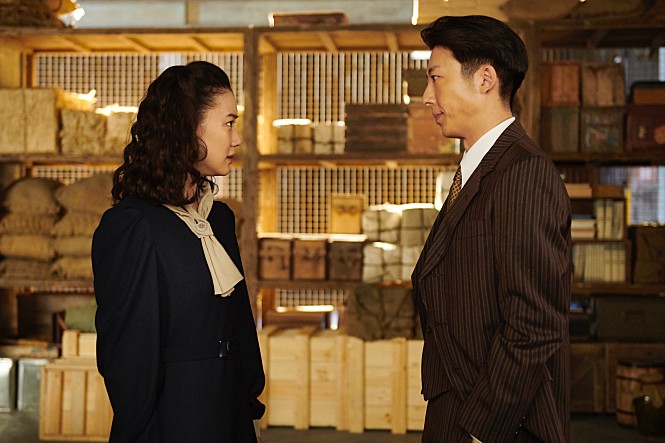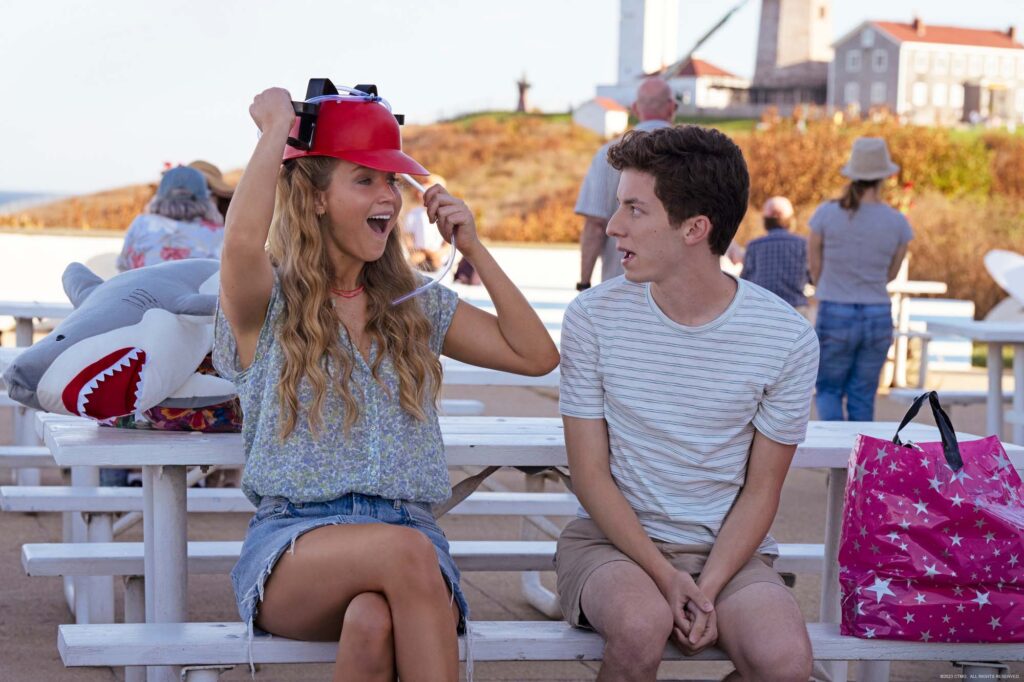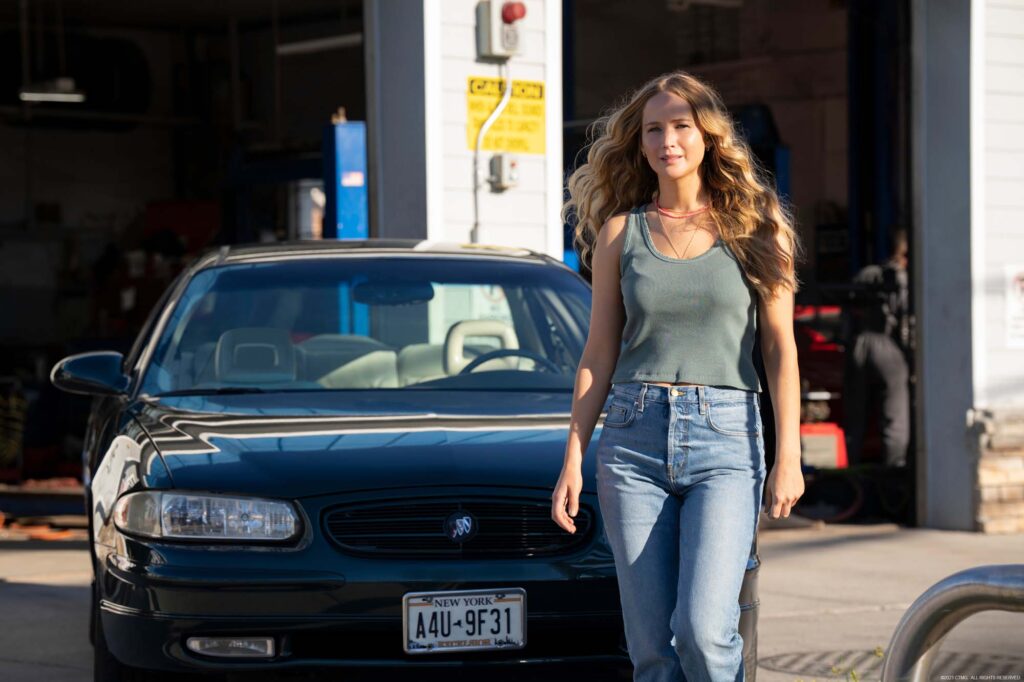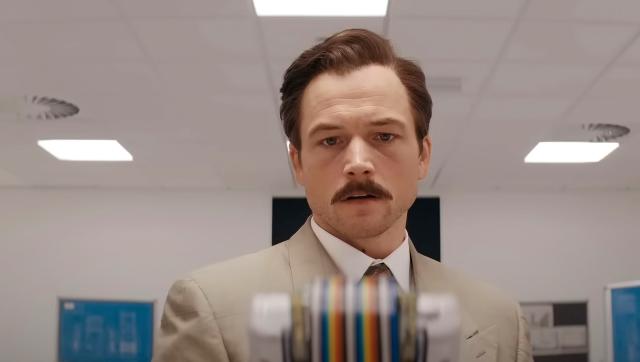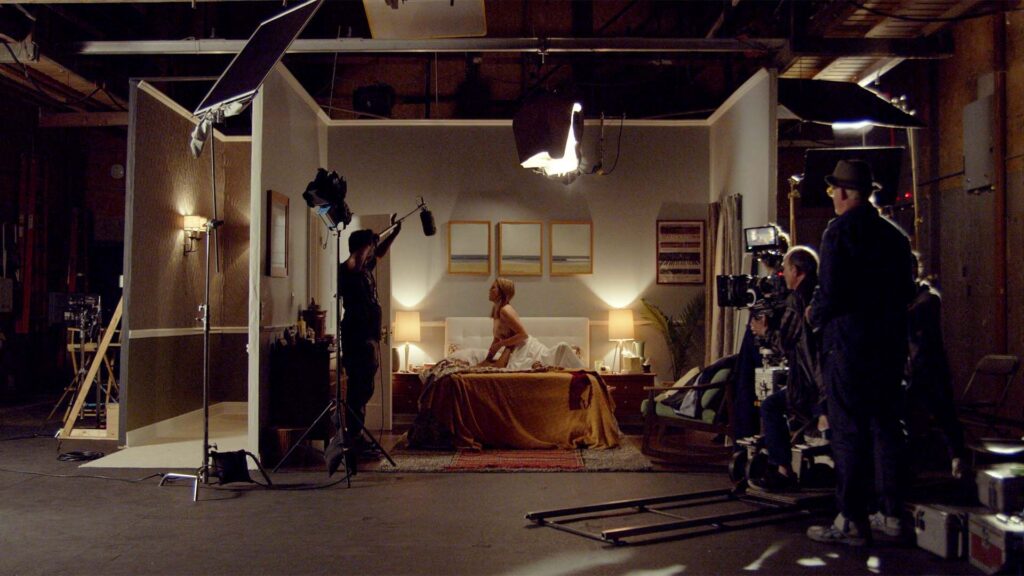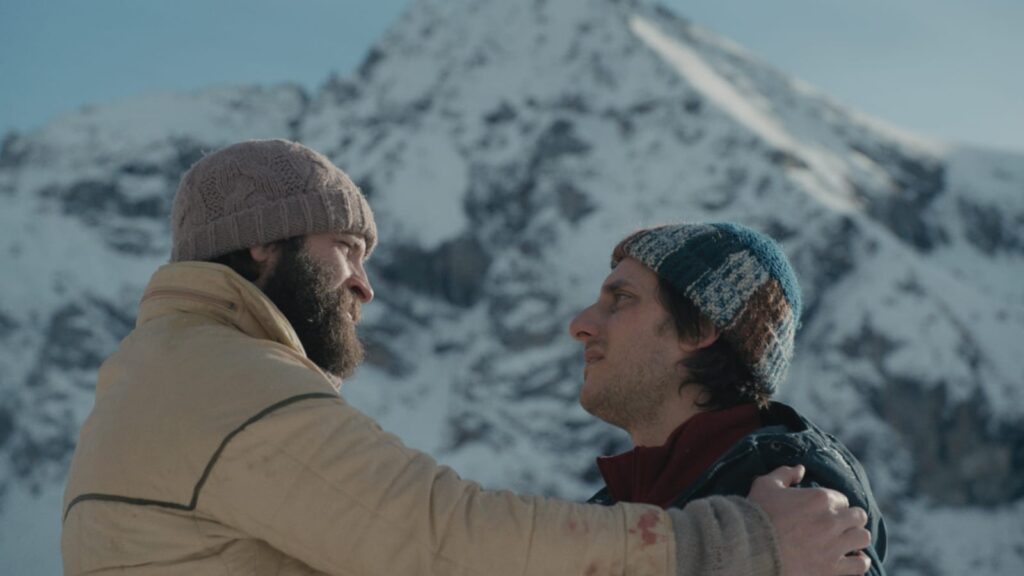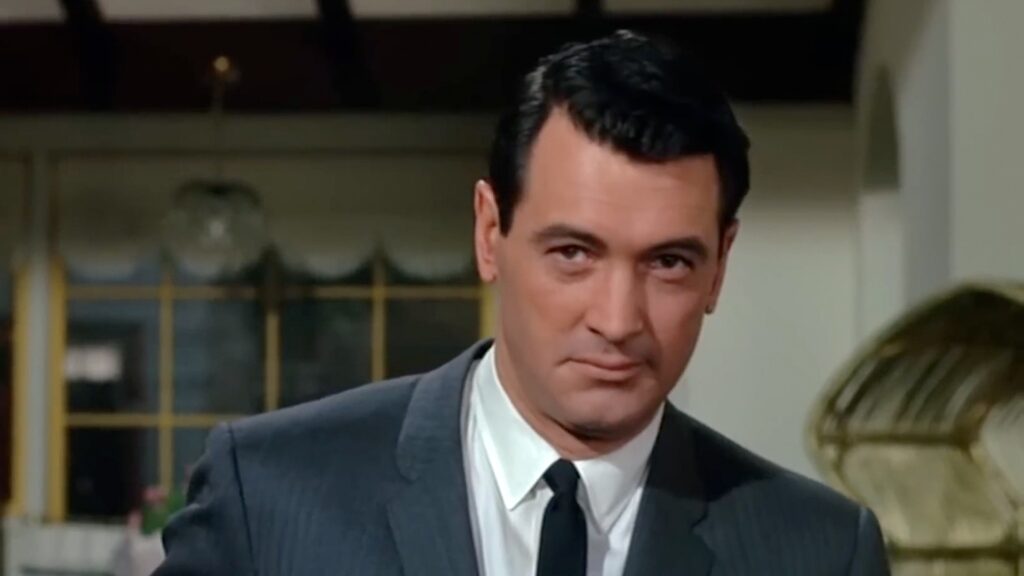
The insightful and often witty showbiz biodoc Rock Hudson: All That Heaven Allowed has an unbeatable leading man – Rock Hudson. From Magnificent Obsession in 1954 through 1962 (Come September and Lover Come Back) Rock earned eight straight years on the list of America’s top ten most popular movie stars. The basis for his popularity was a series of melodramas and romantic comedies that showcased him as the nation’s to heterosexual sex symbol, while he was secretly gay.
Rock’s Hollywood story begins when, as a young Navy vet, he is discovered by the prominent (and sexually predatory) agent Henry Willson, who groomed over a dozen of the beefcake stars of the 50s, many of whom were also closeted gays (e.g., Tab Hunter). Willson gets Rock a contract with Universal and the studio went to to work on re-creating the raw Adonis into leading man material.
Rock Hudson: All That Heaven Allowed unspools the story of Rock’s closeted but vibrant lifestyle, with his decades-long friendship with a Hollywood couple, George Nader (74 screen credits, including the lead in Robot Monster) and Mark Miller. We meet Lee Garlington, Rock’s companion in the early 60s. We hear from author Armistead Maupin (Tales of the City), who joined Rock’s social set in the 70s and kept urging him to come out. We also meet a smattering of Rock’s fellow actors and casual lovers. Rock’s poolside parties resembled a gay version of the Playboy Mansion.
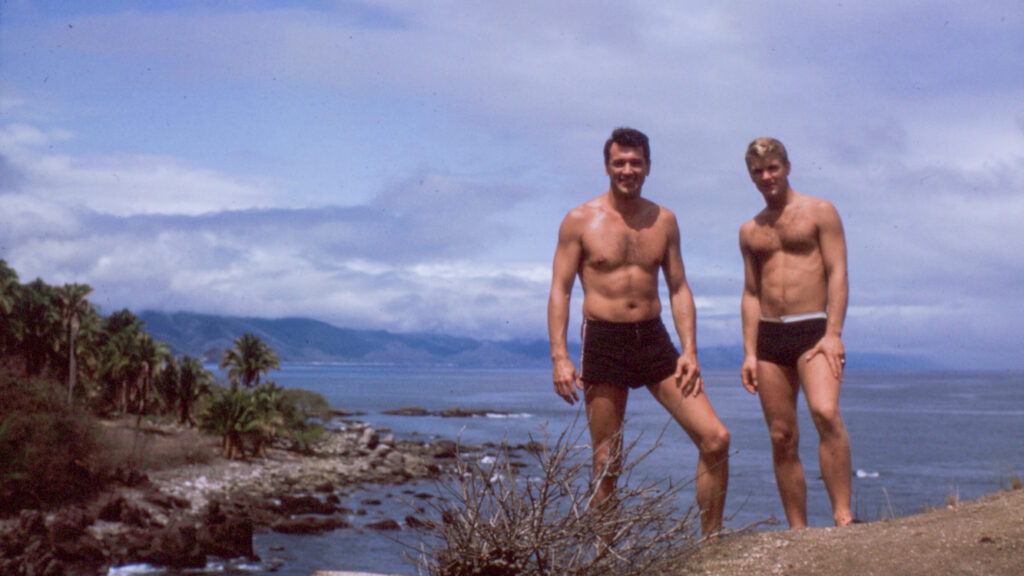
And then Rock Hudson: All That Heaven Allowed takes us back to Rock’s sad finale, as he wasted away from AIDS, early in the epidemic, before there was any real hope from therapeutic medication. We cringe as we revisit Rock’s harrowing kiss of Linda Evans in Dynasty while AIDS-positive – and hear from Evans herself. And we hear of the cruel blow-off by First Lady Nancy Reagan. Isolated by his fear of the AIDS stigma, he still refused to come out of closet, while finally publicly acknowledging his AIDS diagnosis essentially on his deathbed.
While Rock Hudson: All That Heaven Allowed is generally sympathetic to Rock and his closeted plight, it takes an unflinching look at his chain-smoking, heavy drinking, sometimes ruthless ambition and his stubborn refusal to come out.
While the arc of Rock’s life is ultimately tragic, director Stephen Kijak has made Rock Hudson: All That Heaven Allowed very fun to watch by peppering it with clips from Rock’s films. Of course, juxtaposition with the revelations of Rock’s private lifestyle, many, many melodramatic and sexy lines have become hilarious double entendres. The effect of the snippets is poignant as Rock’s story becomes sadder.
Rock Hudson: All That Heaven Allowed is streaming on HBO Max.




